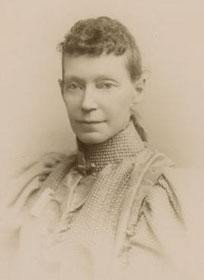
We remember Mary Rudge who passed away one hundred and two years this day on Saturday, 22-xi-1919.
She was born in Leominster, Herefordshire on February 6th, 1842. Her father was Henry Rudge (born 1794 in Gloucestershire) who was a surgeon and General Practitioner. Her mother was Eliza Rudge (née Barrett) who was born in Ledbury, Herefordshire in 1802.
Mary was part of a typically large household and according to the 1851 census she had sisters Sarah (23), Caroline (18), Emily H (12), brothers Henry (14) and Alfred (10). Assisting Henry with medical matters was William S Boyce and acting as a “General Servant” was Thomas Rotheroe (18). Their address is given as “21, Middle Marsh, Leominster, Herefordshire, England” (HR6 8UP). According to HM Land Registry : “Middlemarsh is in the Leominster North & Rural ward of Herefordshire, County of, Herefordshire, Worcestershire and Warwickshire.”
By 1861 the household had relocated to 62, Broad Street, Leominster and the servants were James Price (18) whose occupation is given as a Groom and Sarah Gardener (21) who was the House Servant.
Mary moved, “helpless from rheumatism”, at some point, to Truro and then to the British Home for Incurables, Streatham. She died in Guys Hospital, London, on 22 November 1919.
Editor of British Chess Magazine at the time of her obituary was Isaac McIntyre Brown who afforded Mary a pathetic three lines.
“As we go to press we learn with great sorrow of the death, at Streatham last month, of Miss Mary Rudge, winner of the International Ladies’ tournament in 1897.”
Golombek, Hooper&Whyld and Sunnucks are all silent on Rudge.
From Wikipedia :
“Mary Rudge (6 February 1842 in Leominster – 22 November 1919 in London) was an English chess master.
Rudge was born in Leominster, a small town in Herefordshire, England. She began playing chess in a correspondence tournament in 1872. The first mention of over the board competition is in August 1874 when she played in the second class at the Meeting of the Counties’ Chess Association at Birmingham. After the death of her father, Henry Rudge, she moved to Bristol where she started playing chess seriously.
Rudge was the first woman member of the Bristol Chess Club, which did not allow women to be members of the club until she joined in 1872. She played against Joseph Henry Blackburne, who gave a blindfold simultaneous display against ten opponents. The following year she played in another blindfold simultaneous display given by Johannes Hermann Zukertort. In March 1887 she played and drew on board six for Bristol against Bath at the Imperial Hotel in Bristol. At the beginning of 1888, Rudge played and won on board six for Bristol & Clifton against City Chess & Draughts Club. The following year, she won the Challenge Cup of Bristol & Clifton Chess Club. In 1889, she became the first woman in the world to give simultaneous chess exhibitions. She won the Ladies’ Challenge Cup at Cambridge 1890, and won the second class at the Southern Counties’ tournament at Clifton 1896.[1]”
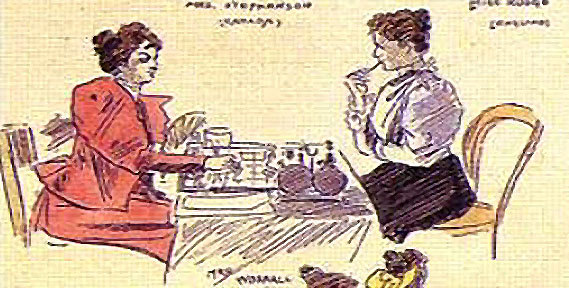
“First Women’s International Chess Congress
She was a winner of the first Women’s International Chess Congress under the management of the Ladies’ Chess Club of London in conjunction with the Women’s Chess Club of New York. Lady Newnes was president of the Tournament Committee, and Sir George Newnes, Baron Albert Salomon von Rothschild, Mr. Harry Nelson Pillsbury and some others offered prizes. The tournament was played at the Hotel Cecil in the Masonic Hall for six days, but the final rounds were decided at the Ideal Café, the headquarters of the Ladies’ Chess Club, from 22 June to 3 July 1897.[2] Miss Rudge was 55 years old and the oldest of the 20 players,[3] and had substantial experience playing chess at the time. She was a well-known English player, ranking in chess strength with the first class of the leading men’s clubs. She won the event with 18 wins and 1 draw, followed by Signorina Louisa Matilda Fagan (Italy), Miss Eliza Mary Thorold (England), Mrs. Harriet Worrall (USA), Madame Marie Bonnefin (Belgium), Mrs. F.S. Barry (Ireland), Lady Edith Margaret Thomas (England), among others.”
Here is an in-depth article about this event from Chesscafe.com
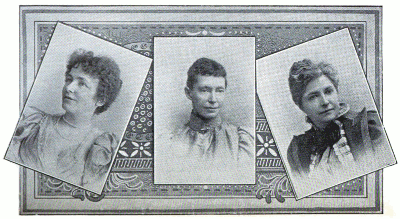
“Over the next years, she took part in various competitions, playing in Bristol and Dublin. In 1898, she played against world champion Emanuel Lasker in a simultaneous display at the Imperial Hotel. Lasker was unable to finish all the games in the time available, and Rudge’s was one of those unfinished. He conceded defeat because he would be lost with best play.”
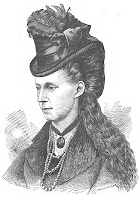
Here is an article from the Bristol Chess Times
and another from the same source.
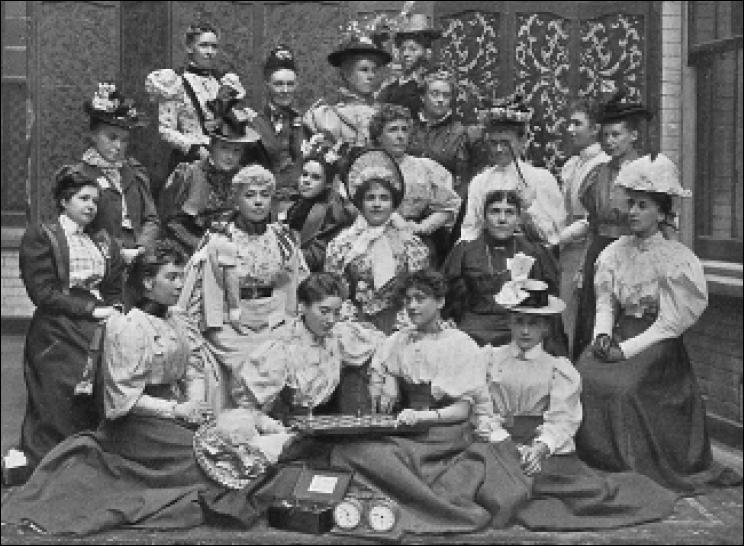

The online edition of the Oxford Dictionary of National Biography has an authoritative article about Mary Rudge researched and written by me.